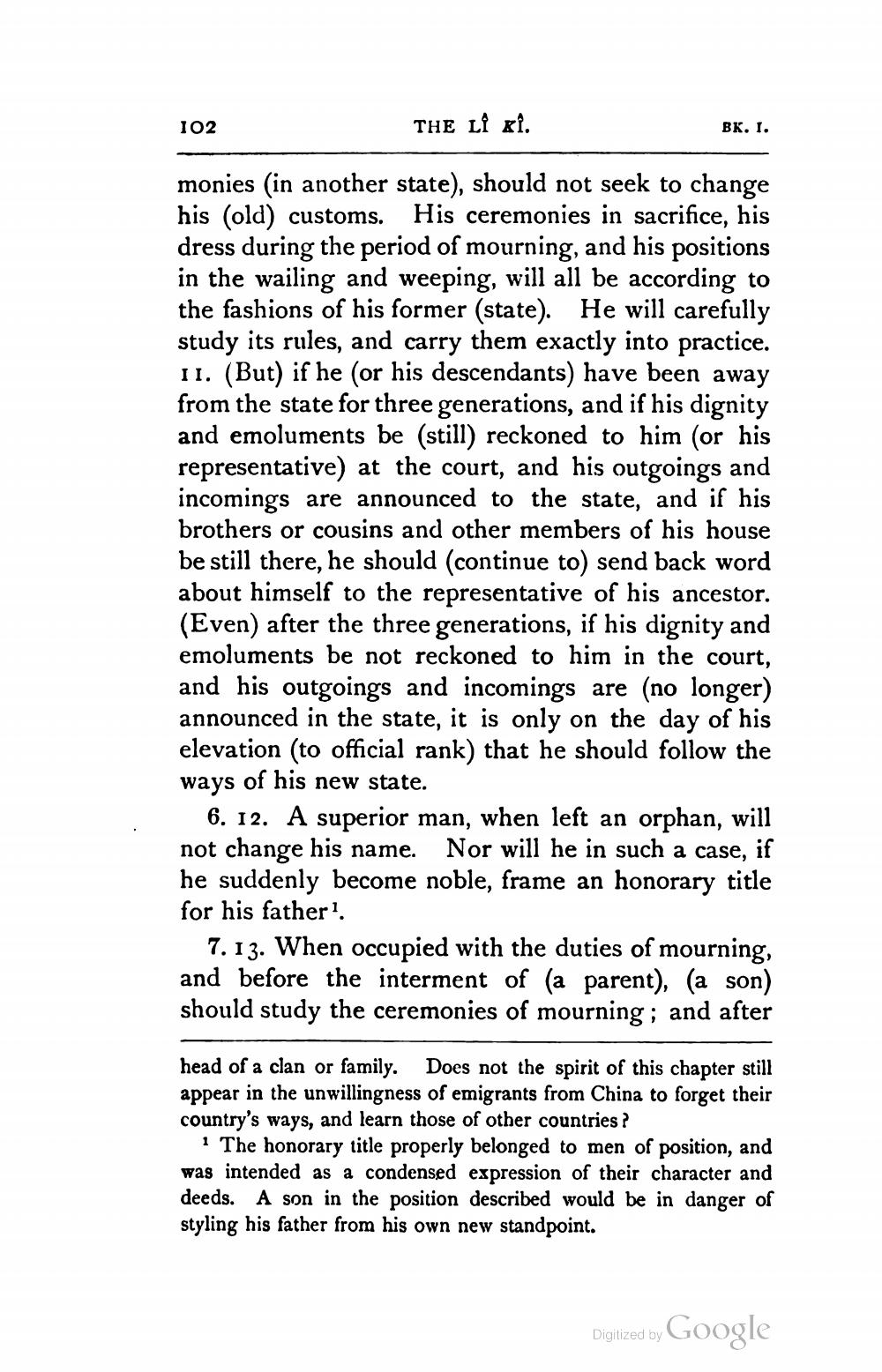________________
THE LI KÎ.
monies (in another state), should not seek to change his (old) customs. His ceremonies in sacrifice, his dress during the period of mourning, and his positions in the wailing and weeping, will all be according to the fashions of his former (state). He will carefully study its rules, and carry them exactly into practice. 11. (But) if he (or his descendants) have been away from the state for three generations, and if his dignity and emoluments be (still) reckoned to him (or his representative) at the court, and his outgoings and incomings are announced to the state, and if his brothers or cousins and other members of his house be still there, he should (continue to) send back word about himself to the representative of his ancestor. (Even) after the three generations, if his dignity and emoluments be not reckoned to him in the court, and his outgoings and incomings are (no longer) announced in the state, it is only on the day of his elevation (to official rank) that he should follow the ways of his new state.
102
BK. I.
6. 12. A superior man, when left an orphan, will not change his name. Nor will he in such a case, if he suddenly become noble, frame an honorary title for his father1.
7. 13. When occupied with the duties of mourning, and before the interment of (a parent), (a son) should study the ceremonies of mourning; and after
head of a clan or family. Does not the spirit of this chapter still appear in the unwillingness of emigrants from China to forget their country's ways, and learn those of other countries?
1 The honorary title properly belonged to men of position, and was intended as a condensed expression of their character and deeds. A son in the position described would be in danger of styling his father from his own new standpoint.
Digitized by Google




